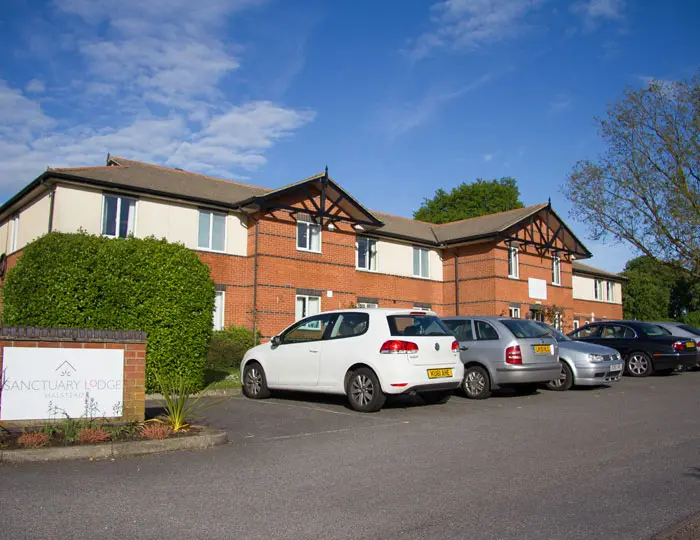Rehab treatment

Written by:

Medically Reviewed by:
Last Updated:
March 28th, 2025
If you are considering alcohol or drug addiction treatment, you may be wondering what life in rehab actually looks like. You may have an image in your mind or preconceptions based on tabloid stories about celebrity rehabs, but the reality of alcohol rehab and drug rehab is often very different from what people expect.
On this page, we will explain how addiction rehab works from the moment you first reach out for help to the assistance available after you leave. We will also discuss some of the treatments available in different types of rehabs as well as give some first-hand accounts from former clients about their experiences.

Alcohol rehab
If you or a loved one is suffering from alcohol misuse, click here to read about specific treatment routes and find advice on the best ways to support someone in their recovery.

Drug rehab
For everything you need to know about drug rehabilitation, click here to discover the best places to access treatment and support, either for yourself or a loved one.

Prescription drug rehab
If you or someone you love is struggling with prescription drugs, read more about the best way to access treatment and what to expect from a rehabilitation centre.
What is rehab?
Rehab or rehabilitation is the process of undergoing various stages of treatment to help you overcome an addiction.
Different addiction rehabs provide different treatment programmes, but all are intended to help you understand the underlying causes of your addiction and the triggers that provoke you to abuse substances or engage in compulsive behaviour. This enables you to address those causes so that you can create healthier coping mechanisms during difficult times or when cravings arise.
What can be treated at rehab?
Rehabs treat various types of addictions, including substance addictions to drugs and alcohol, behavioural addictions to gambling or shopping, and eating disorders.
The common thread in all of these conditions is the presence of uncontrollable compulsions. An alcoholic might feel compelled to drink excessive volumes of alcohol despite knowing the damage it is causing. Similarly, a gambling addict faces uncontrollable compulsions to gamble. It is compulsive behaviour despite the obvious harm that is the earmark of addiction.
How does addiction rehab work?
The first step in any effective rehab treatment programme is to evaluate the client on an individual basis. Based on what we now know about addictive behaviour, it is not enough to simply funnel every alcoholic into one rehab programme and every cocaine user into another. The old one-size-fits-all approach to addiction treatment does not work.
The evaluation process is designed to accomplish several things. First, we want to know what you are currently struggling with and how long that struggle has been ongoing. Second, we need to know if there are any other addictive behaviours or compulsions that you are experiencing. Third, we try to learn more about your history, home life and living situation. All of this information is taken into account before determining how to best treat you.
What can you expect from rehab?
A comprehensive rehab treatment programme is made up of three stages: detox, addiction therapy and aftercare. Not every addiction requires detox, but for many substance addictions, it is crucial.
The therapy stage will depend on what you are addicted to, as well as the type of rehab you undergo. There are two main options; inpatient rehab and outpatient rehab.
Inpatient addiction rehab
Inpatient treatment programmes take place at a residential rehab centre and involve an extended stay in the facility. The environment is usually comfortable and luxurious with no distractions. This will allow you to spend all of your time focusing on addiction recovery without being surrounded by your normal triggers or negative influences.
Patients recovering in an inpatient facility will spend most of their day in treatment, taking part in a range of activities, including group therapy sessions, individual counselling, cognitive behavioural therapy, family therapy and 12-step work. As well as traditional treatments, patients may engage in holistic therapies such as art therapy, music therapy, yoga, sports nutrition, and massage.
Outpatient addiction rehab
Addiction treatment can also take place in an outpatient facility which differs from inpatient programmes in that you do not need to stay in the clinic. Instead, you attend regular counselling or therapy sessions before returning home afterwards.
Some people choose to receive addiction treatment on an outpatient basis because they don’t think their personal circumstances will enable them to commit to a long stay in a residential rehab centre.
However, addiction treatment at a residential rehab centre is usually far more effective than outpatient therapy because it provides a fully immersive addiction recovery experience. Inpatient treatment addresses every aspect of addiction; physical, mental, psychological and emotional; whereas outpatient services do not provide the same holistic approach.
A typical day in addiction rehab
A typical day in a UKAT rehab centre starts with a healthy breakfast, group meditation and then group therapy. This is followed by lunch which will give you time to rest and recover before the afternoon activities. These may involve recovery-specific activities or different kinds of therapy. There are also two one-to-one therapy sessions a week, book studies for different types of addiction, and ongoing personal projects. During the day, you will also be given lots of breaks to rest and chat with the staff and other residents.
Some of the therapies you may undergo
- Cognitive Behavioural Therapy
- Dialectical Behaviour Therapy
- Individual Therapy
- Group Therapy
- Music Therapy
- Art Therapy
How does rehab help addiction recovery?
Addiction is a complex, multi-faceted condition. Some people believe that a person with an alcohol addiction just loves drinking or that addicts are weak-willed or too lazy to quit. This couldn’t be further from the truth. There are many paths to addiction, but it usually develops from underlying mental health conditions or anguish such as:
- Depression
- Trauma
- Anxiety
- Genetic predisposition
- Environmental causes
By getting to the root of these causes systematically, you can reshape your relationship with your addictive substance and learn new ways of dealing with the underlying issues.
Rehab provides the perfect environment for recovery because you are surrounded by people who are going through the exact same process and will have experienced the same difficulties as yourself. At UKAT, many of our therapists have successfully overcome their own addictions, so they are able to guide and support you from a position of empathy and personal experience.
As our former client James explains:
“You are understood and accepted straight away, which is a revelation because you’ve spent so long thinking nobody understands you.”
There is still a societal stigma about addiction, and while things are improving as we begin to understand more about its root causes, many people are reluctant to admit they have an addiction or to enter rehab. However, once you commit to a treatment programme and meet other people on their own recovery journey, you will understand that there is nothing to be ashamed of.
The former professional Footballer Paul Merson, who has struggled his whole life with substance and gambling addiction, explains the realisation he had:
“I realised that I wasn’t a bad person trying to become good; I was a sick person trying to become well.”
What happens after you leave rehab?
It is crucial to understand that addiction is not a condition that can simply be cured by a 12-week stay in rehab. Long-term recovery is a journey with many twists and turns, small victories and minor setbacks. That’s why the best rehab treatment centres offer aftercare programmes to help you long after you have completed your initial treatment programme.
Addiction thrives when it is able to isolate a person from their loved ones and support systems, and so the post-rehab stage is just as important as anything that you will experience in rehab. An effective aftercare programme extends the sense of community of rehab so that you still feel connected and supported after you leave. This ensures that you are never alone as you continue on your journey to a healthier, happier life.
Frequently Asked Questions
- Travelling distance and cost of travel – Especially for those with families or work commitments
- Level of care – Some counties do not have private rehabs or counsellors who are trained in the field of addiction
- Triggers – If staying at home or around your area brings about temptation, seeking treatment in a different area may discourage such triggers
UKAT provides a number of private rehab facilities throughout the UK so if private treatment is a consideration, feel free to get in touch with one of our team so that they can suitably place you.
We always recommend that as part of any long-term recovery programme, attending regular AA (Alcoholic Anonymous) or NA (Narcotic Anonymous) meetings will help you abstain from relapse and help to build long-lasting, meaningful friendships.



























